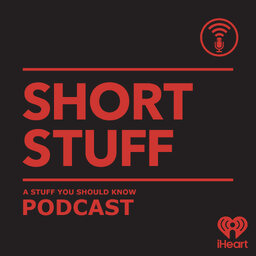Exactly what happens if we run out of water?
In 1995, World Bank vice president Ismail Serageldin declared that "the wars of the next century will be about water." Check out our HowStuffWorks article to learn what happens once we run out of water.
Learn more about your ad-choices at https://www.iheartpodcastnetwork.com
 Stuff You Should Know
Stuff You Should Know


